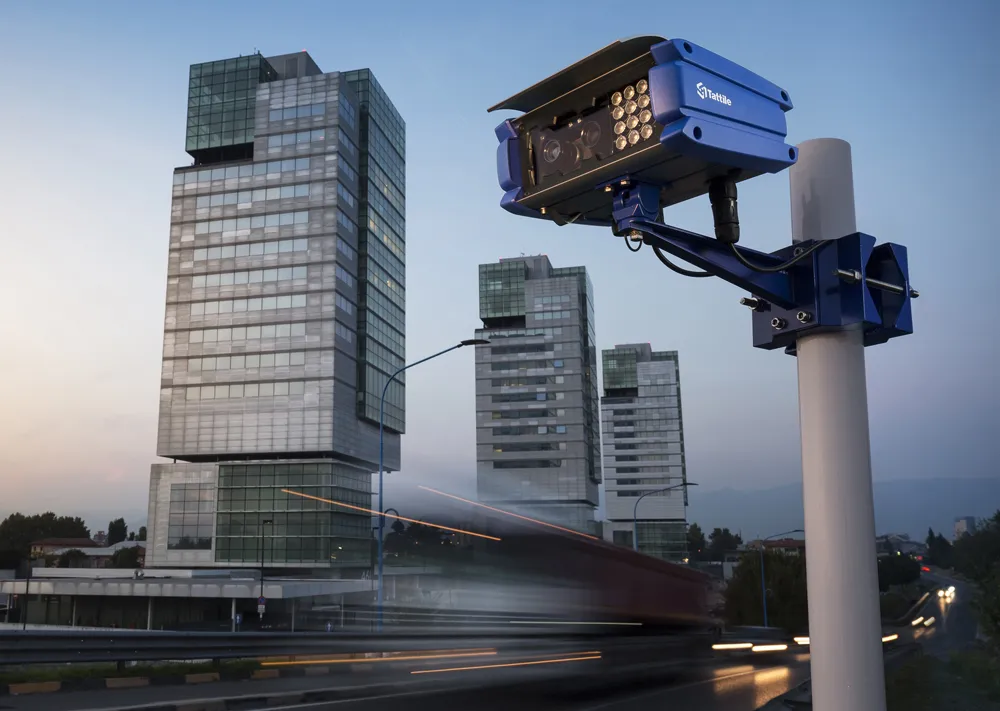Dubai Police continues its road safety initiative by awarding a further contract to Vitronic for fixed traffic enforcement systems; the contract includes PoliScan speed enforcement, combined red light and speed enforcement systems as well as violation processing software. The stationary PoliScan speed systems monitor all vehicles in the surveillance zone equally, even if they are tailgating, changing lanes, driving in the vicinity of road works, tunnels or taking bends. In Dubai the systems come with automa
December 20, 2012
Read time: 2 mins
Dubai Police continues its road safety initiative by awarding a further contract to 147 Vitronic for fixed traffic enforcement systems; the contract includes PoliScan speed enforcement, combined red light and speed enforcement systems as well as violation processing software.
The stationary PoliScan speed systems monitor all vehicles in the surveillance zone equally, even if they are tailgating, changing lanes, driving in the vicinity of road works, tunnels or taking bends. In Dubai the systems come with automatic evidence data transfer to the violation processing centre using 3G.
The combined speed and red light enforcement devices are equipped with two 8 megapixel high-resolution colour cameras and a light detection and ranging laser (LIDAR) detection unit. During the red light enforcement phase, a video camera captures two rear images and a video sequence of the incident in addition to two frontal images produced by the laser system.
The modular construction of the PoliScan pillars enables monitoring of vehicles travelling in different directions from a single point.
Dubai Police is investing in state-of-the-art traffic enforcement technology and is serious about improving road safety. “We aim not to collect money but to protect people’s lives.” Colonel Al Mazroui, Dubai Police’s Deputy Director of the General Traffic Department, said. According to Colonel Al Mazroui there are more than 1,000 enforcement systems on Dubai’s roads that record 12,000 fines every day. “Increasing the number of enforcement systems will bring increased safety,” he said.
The stationary PoliScan speed systems monitor all vehicles in the surveillance zone equally, even if they are tailgating, changing lanes, driving in the vicinity of road works, tunnels or taking bends. In Dubai the systems come with automatic evidence data transfer to the violation processing centre using 3G.
The combined speed and red light enforcement devices are equipped with two 8 megapixel high-resolution colour cameras and a light detection and ranging laser (LIDAR) detection unit. During the red light enforcement phase, a video camera captures two rear images and a video sequence of the incident in addition to two frontal images produced by the laser system.
The modular construction of the PoliScan pillars enables monitoring of vehicles travelling in different directions from a single point.
Dubai Police is investing in state-of-the-art traffic enforcement technology and is serious about improving road safety. “We aim not to collect money but to protect people’s lives.” Colonel Al Mazroui, Dubai Police’s Deputy Director of the General Traffic Department, said. According to Colonel Al Mazroui there are more than 1,000 enforcement systems on Dubai’s roads that record 12,000 fines every day. “Increasing the number of enforcement systems will bring increased safety,” he said.









